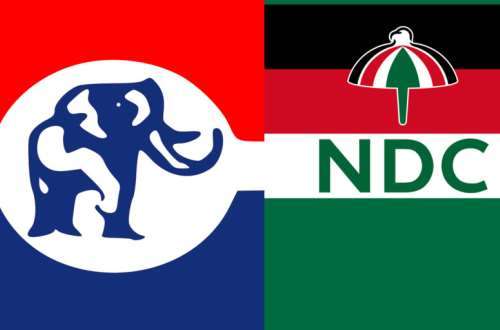Politicians on both sides of the ideological divide in Ghana have always been engaging in a vicious cycle of finger-pointing, with each blaming the other for the country’s social and economic woes.
Consequently, back-and-forth accusations are common, as leaders from different parties, the NDC and the NPP especially, attempt to deflect responsibility and shift blame onto each other.
This blame game not only serves as a distraction from the real issues at hand but also hinders any meaningful progress toward finding solutions to the country’s problems as these political opponents are always at loggerheads.
For instance, while the NDC blames the incumbent NPP government for the current power outage situation, the NPP still points out how poorly the NDC handled the dumsor situation in 2015 without any of the parties providing solutions to the problem.
As such, the public is often left frustrated and disillusioned by the constant bickering and lack of accountability displayed by government officials and other political actors.
Hence, instead of working together to address the root causes of poverty, corruption, and inequality, politicians are more focused on scoring political points and protecting their interests.
Moreover, the culture of blame and deflection only serves to deepen the divide between different political factions and undermines the trust of the people in the government.
As a result, Ghana continues to face persistent challenges in its efforts to achieve sustainable development and improve the well-being of its citizens.
Accordingly, Professor Ransford Gyampo, Lecturer of Political Science at the University of Ghana (UG), has called on politicians to rise above petty politics and provide real-time solutions to the current socio-economic problems facing Ghanaians.
He stated that citizens who benefit from good governance attest to its success, not governments who claim to have outperformed others.
“But let me say quickly that, it is not about telling us that the alternative is worse. It is about redeeming the lost goodwill by fixing the current overwhelming problems and allowing Ghanaians to judge”.
Professor Ransford Gyampo
He further emphasized that restoring positive public perceptions of government and its institutions by addressing existing challenges and enabling citizens to improve themselves is a crucial aspect of good governance.
Addressing The Blame Game
Although political blame games may be beneficial for promoting the propaganda agendas of the major political parties in Ghana, they are not conducive to progress and development.

As such, leaders become more focused on proving their opponents wrong rather than working with them to find solutions to national issues.
It is therefore essential for leaders to reduce the prevalence of finger-pointing and work together on matters of national importance to promote the socioeconomic progress and welfare of the people of Ghana.
To reduce the regularity of political blame-shifting among politicians in Ghana, it is crucial to foster a culture of accountability and transparency within the government.
Hence, the government must implement clearer guidelines and protocols for decision-making processes, ensuring that all actions taken by government officials are well-documented and easily traceable.
Additionally, promoting open communication and collaboration among different branches of government and political parties can help prevent misunderstandings and prevent the need for finger-pointing.
Thus, the chaos witnessed during the recent tussle between the Executive and Parliament could have been avoided with better communication and collaboration between both arms of government.
It is also important to encourage a spirit of unity and teamwork among political parties, the NDC and NPP especially, emphasizing the importance of working together towards common goals rather than focusing on individual achievements.
More so, training programs on conflict resolution and effective communication can also be beneficial in equipping government officials and political parties with the skills needed to address disagreements and disputes in a constructive manner.
Furthermore, establishing an independent oversight body to monitor the actions of government officials and hold them accountable for their decisions can help prevent the allocation of blame within the government.
In the long run, by promoting a culture of responsibility, collaboration, and transparency, the occurrence of political finger-pointing among political actors in Ghana can be significantly mitigated.
READ ALSO: Ghana Holds Its Breath As Fitch Predicts Doom for the Cedi























